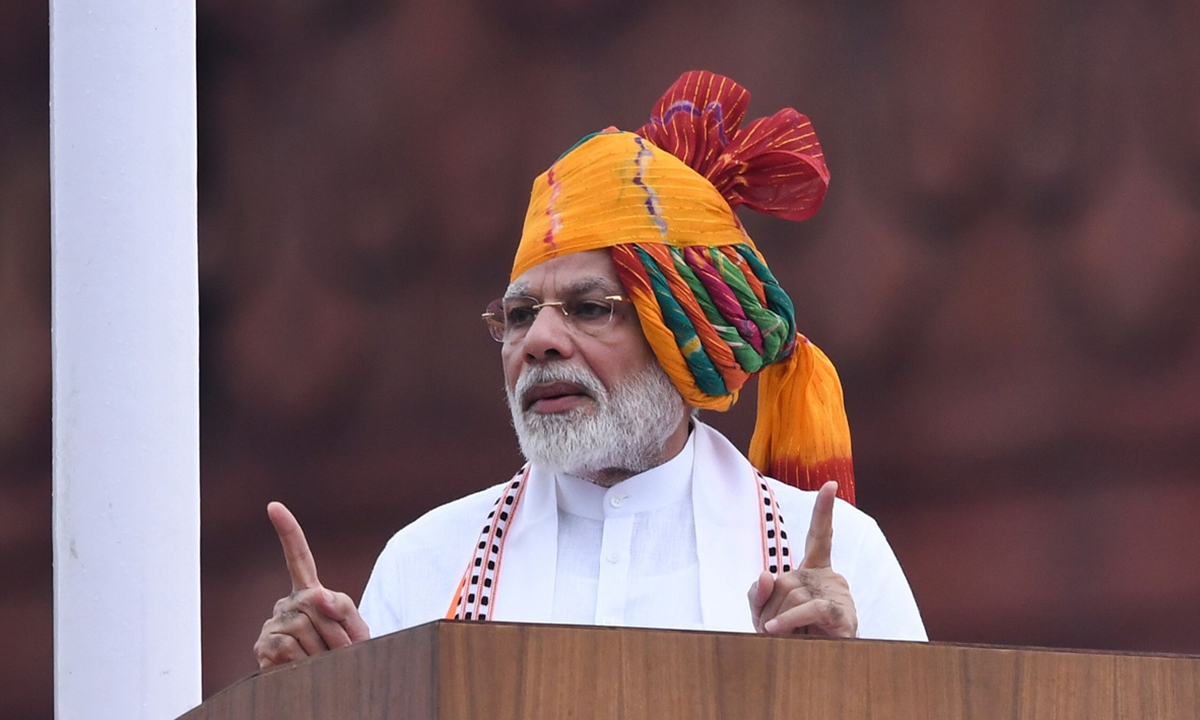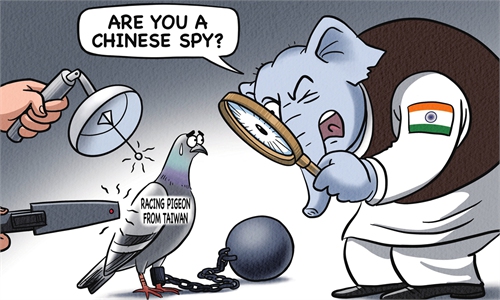Modi's remarks on China-India relations are thought-provoking: Global Times editorial

Indian Prime Minister Narendra Modi File photo:VCG
Indian Prime Minister Narendra Modi's "rare" direct statement on China-India ties has been attracting attention. In an exclusive interview with US magazine Newsweek, he stated that for India, the relationship with China is important and significant; India and China "need to urgently address the prolonged situation on our borders so that the abnormality in our bilateral interactions can be put behind us." He said that stable and peaceful relations between India and China are important for not just the two countries but the entire region and world, adding that "I hope and believe that through positive and constructive bilateral engagement at the diplomatic and military levels, we will be able to restore and sustain peace and tranquility in our borders." Reuters interpreted the remarks as "an apparent softening of tone" on China-Indian bilateral issues.
On the Indian side, particularly among officials responsible for diplomacy and the military, occasional comments have been made on China-Indian relations and border issues over the years, sometimes soft, sometimes tough. However, Modi's direct statement, especially his clear position, is quite rare and carefully timed, hence receiving exceptional attention from the public opinion.
The last time his remarks were highly anticipated was when Modi emphasized that peace on India's border with China is essential for normal relations, and that India was committed to protecting its sovereignty and dignity, while attending the Group of Seven (G7) summit in Hiroshima, Japan, last year, which clearly catered to the Western audience who were wishing to see China-India row. This time, his remarks come after the intensification of China-India border tensions due to US' biased stance and before the upcoming elections in India, and are thus more worthy of consideration.
Modi's interview has sent out quite positive signals regarding China-Indian relations. It corrects the recent heating-up trend of India's attitude and actions on border issues, demonstrating a willingness to pragmatically resolve problems and ease bilateral relations.
In fact, this attitude is what China has always adhered to. The border issue is not the whole of China-India ties. It should be placed at an appropriate position in the bilateral relationship and properly managed. Both sides have enough wisdom and ability to resolve the issue through diplomatic and military channels. If India can implement Modi's statement and meet China halfway, bilateral relations moving forward on a healthy and stable track is something that can be expected.
Of course, regarding an interview published in Newsweek, an American magazine with significant influence, Modi clearly understands that the primary audience for these words is in the US and Western public opinion. These statements may not be so "pleasing" to some in Washington who hope to weaken China through worsening relations between China and India, but this is precisely the message India wants to convey to them at the moment. The top authorities of India have maintained a sober cognition toward Washington's desire for escalating "dragon-elephant rivalry" or even to steer China and India toward confrontation, and have kept strategic autonomy in developing relations with China in their own hands. They have also maintained a restrained attitude toward voices both domestically and internationally that hope for further deepening of ties between the US and India, leaving themselves more room for maneuver.
More importantly, these remarks reflect India's perspective on current geopolitical and economic relations. This interview discusses many aspects of India's "rise" in domestic and foreign affairs, and the views and attitudes of Modi, one of the most important candidates in this election, will undoubtedly offer a glimpse into the important direction of India's development in the next stage. Development remains the most important issue for India, necessitating a favorable regional environment. Being in conflict with China would squeeze the resources needed for development, while maintaining relatively stable relations with China is a more advantageous geopolitical and economic choice for India.
In fact, as two of the most eye-catching developing countries in the world, two Asian nations with ancient civilizations, how to perceive their relationship and how to approach development should transcend the mind-set and imagination of viewing each other as either friend or foe, or the zero-sum game of "your strength is my weakness." In fact, China has consistently advocated for India to grasp the bilateral relationship from a strategic and long-term perspective. India faces significant temptations and strategic traps to overcome in doing so, which requires the country to remain vigilant and discard distractions from third parties with ill intentions at all times.

